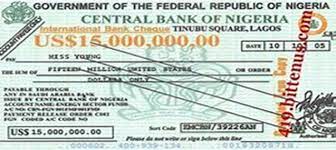Premium Times
A former government soldier told the Finnish war crimes trial of Gibril Massaquoi, the former Revolutionary United Front commander, harrowing stories Wednesday of Massaquoi massacring women and children in Lofa County and roasting them.
“Gibril Massaquoi killed women and children and opened up the bodies and roasted them just like roasted meat,” said the soldier codenamed “Soldier 1” by the court to conceal his identity.
“Soldier 1” told the court his brother, a child, was among the victims.
“He also killed my brother in Popolahun, when I was on the front line in Bellehfasama and someone told me but when I got there Massaquoi had already left the area.”
The former soldier said Massaquoi’s brutality was well known. He said his commander, also a witness in the trial and so the court has ordered his identity be concealed, had sent him to order Massaquoi to stop killing as the massacre at Waterside in Monrovia became known. Many previous witnesses have detailed what they said was Massaquoi’s murder and rape of civilians at Waterside.
“My commander sent me to Waterside to put a stop to Gibril Massaquoi, but he refused to listen to me, because I was lower in rank. When I told him what my boss had said, he took a gun from one of his soldiers and started shooting and killing the soldiers and civilians,” he said. “I saw Massaquoi himself killing 12 soldiers and many civilians. Just because Massaquoi had the power, so whenever he saw group of people standing, he would start shooting and killing them.”
He told the four-judge panel that after 2001 he never saw Massaquoi again even though he was looking for him to kill him in revenge for killing his brother.
Another witness, codenamed “Soldier 07”, was also an officer of the Special Security Service, (SSS) under President Charles Taylor invited by both prosecution and defence teams.
He also spoke about the Waterside killings and said Gibril Massaquoi controlled the Waterside area in 2001. He said Massaquoi killed soldiers and civilians in the store in Waterside. The witness said Massaquoi also killed his bodyguard, a man known as “Bulldog”. After that the two nearly exchanged gunfire.


